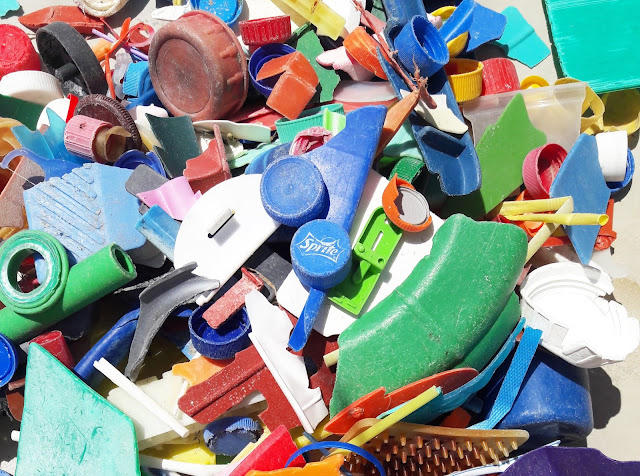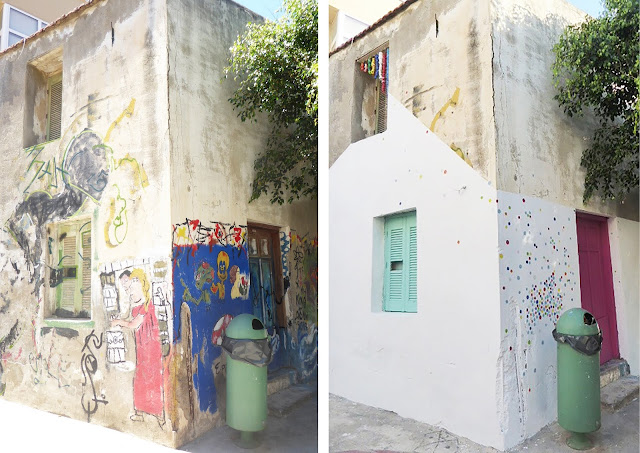

Heraklion, Crete, June 2019
This project involved collecting plastic waste that had
been swept onto two different beaches in Heraklion. In just two hours, nearly
2,000 pieces of debris were collected. One million disposable plastic bottles are opened
every minute around the world and lids are the most common form
of plastic found on beaches. Using the lids from the collected rubbish, they
were printed and painted on a wall above a municipal dustbin to represent the
quantity, colours and nature of how they were found as scattered litter;
inappropriately disposed of. The lids themselves were tethered and hung in a
redundant window frame within the wall. The aim was to draw attention to the
global issue surrounding plastic waste being ‘cast away’ and becoming stranded
on beaches around the world.









